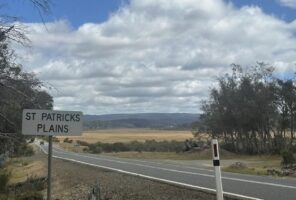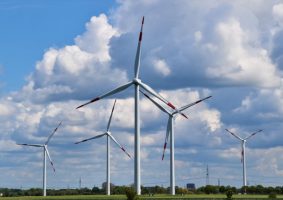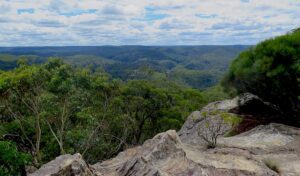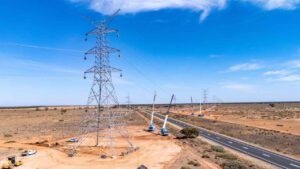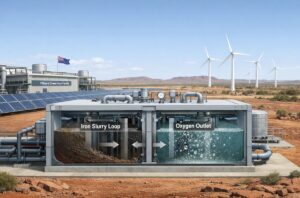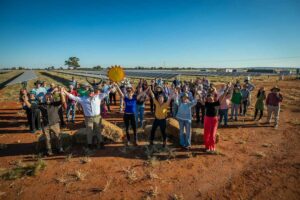So, it’s come down to this. The defence of Australia’s renewable energy industry has been entrusted to the hands of a man who thinks carbon pollution is caused by nature, not people, and another who is openly hostile to wind farms.
 The re-run of the Senate election in Western Australia this weekend provides some interesting fodder for the psephologists: Labor’s continued electoral implosion, the Scott Ludlum-inspired revival of the Greens, and the outstanding success of Clive Palmer’s expensive electioneering.
The re-run of the Senate election in Western Australia this weekend provides some interesting fodder for the psephologists: Labor’s continued electoral implosion, the Scott Ludlum-inspired revival of the Greens, and the outstanding success of Clive Palmer’s expensive electioneering.
But for the key policies that will affect Australia’s renewable energy industry – and the decarbonisation of the Australian economy – the equation is essentially unchanged. The numbers in the new Senate, to site from July 1 means that the carbon price – despite whatever hoops that Palmer may try and get the Abbott conservative government to jump through – is effectively dead and buried.
Any changes to the renewable energy target – or even its ditching – will likely go unimpeded through parliament. At best, Labor and the Greens would need support for the RET from Nick Xenophon, not a fan of wind farms, and the DLP’s John Madigan, who has been celebrating what he is sure is the impending demise of the RET.
“The wind industry is panicking in Australia with the likely death of the Renewable Energy Target and this is another example of its peddling influence and money to manipulate the truth,” Senator Madigan told The Australian last week.
At worst, Labor and the Greens would need support from the Palmer United Party to support the renewables target. Good luck with that; Palmer, who now has three of his own Senators and a fourth from the Motoring Party tied up in an unspecified “alliance,” says renewable energy targets should not be compulsory.
“We don’t intend to legislate to make people do something they may not want to do,” Palmer told ABC’s Lateline program last week. This, as economist Ross Garnaut pointed out on the same program, would be about as effective as making taxes voluntary.
What’s not clear is the future of the $10 billion Clean Energy Finance Corporation, or likely budget cuts to the Australian Renewable Energy Agency, both of which would require legislative approval.
The CEFC was actually supported by Xenophon and Madigan in a repeal vote earlier this year because, while they are not supporters of wind energy, they see the upside of bringing in new renewable technologies. Xenophon, in particular is a fan of what he calls “baseload” renewables, meaning geothermal and ocean energy – even those these are years away from commercial deployment. The CEFC has been largely focused on energy efficiency, waste-to-energy, and some emerging solar technologies. ARENA is similarly focused on techologies that do not yet match wind energy on cost.
If Labor can somehow grab the sixth seat in the WA Senate, then Xenophon and Madigan could protect the CEFC, and allow it to continue beyond early July. If not, and the sixth seat falls to the Liberals, then the fate of the CEFC lies in the hands of Palmer.
Quite what he makes of the CEFC is anyone’s guess. The fact that it brings in private money at a ratio of nearly $3 for every $1 in loans may be appealing, so might its ability to develop a profit to the government, and abatement at a “net benefit.”
The abatement equation, however, may just fall on deaf ears. Palmer, it seems, appears to believe that any sort of abatement is a waste of time. Quoting material from what must be one of the more extreme climate denier websites, Palmer told Lateline last week:
“Now we know that 97 per cent of the world’s carbon comes from natural sources. Why don’t we have money to look at how we can reduce the overall carbon signature by reducing it from nature, not just from industry. It’s entirely wrong-focused.”
And there’s more. Check out the transcript, it gets feisty in part but it is as though Palmer is channeling the thoughts of Tony Abbott’s main business advisor, Maurice Newman, and those of Dick Warburton, the head of the RET review panel. The climate skeptic brigade is now in full control of climate and renewable energy policy in this country.
Of course, it did not need to have come to this. Climate change and renewable energy policies were supposed to be bipartisan, and for a brief moment in time they were, before the relentless and pig-headed push by the Rudd government to make climate change a wedge issue for the conservatives saw Malcolm Turnbull’s reign at the head of the Coalition ended abruptly, the Liberal Party swerve dramatically to the far right with his replacement by Abbott, and the Greens reject the then CPRS after Rudd refused to even talk to them.
The renewable energy target was also supposed to be bipartisan, and Labor had the opportunity to put this issue to rest if it had the conviction to accept the Climate Change Authority’s recommendation to provide certainty for the industry and push the next review out to 2016.
In the end, Labor backed off. It was the only one of the CCA’s key recommendations that Labor refused to implement.
Not only did that decision make the rest of the CCA’s recommendations and endorsement of the RET irrelevant (because of lingering uncertainty about the future of the policy), it left the way open for the Abbott government to conduct its own review, and justify it as a legislative requirement.
And so it appointed a special panel comprising a climate change sceptic, a fossil fuel lobbyist and the former head of one of Australia’s most emissions intensive generation companies to consider the merits of wind and solar.
Now, the renewables industry has to rely, possibly beyond hope, on the support of politicians who think that human-caused climate change is a myth, and that renewables should not be mandated, probably cause health problems, are expensive and unreliable.
It should never have come to this. But it has.


